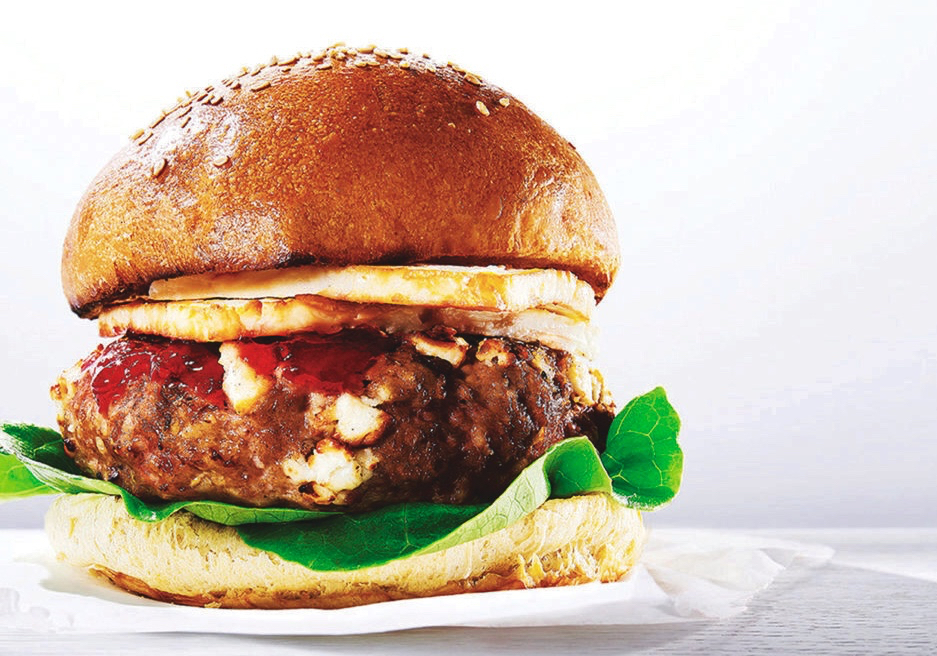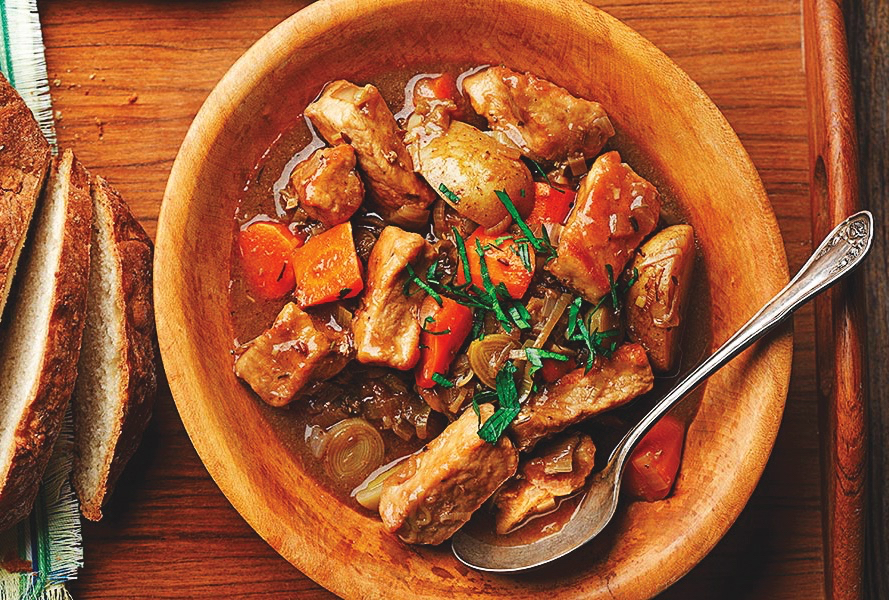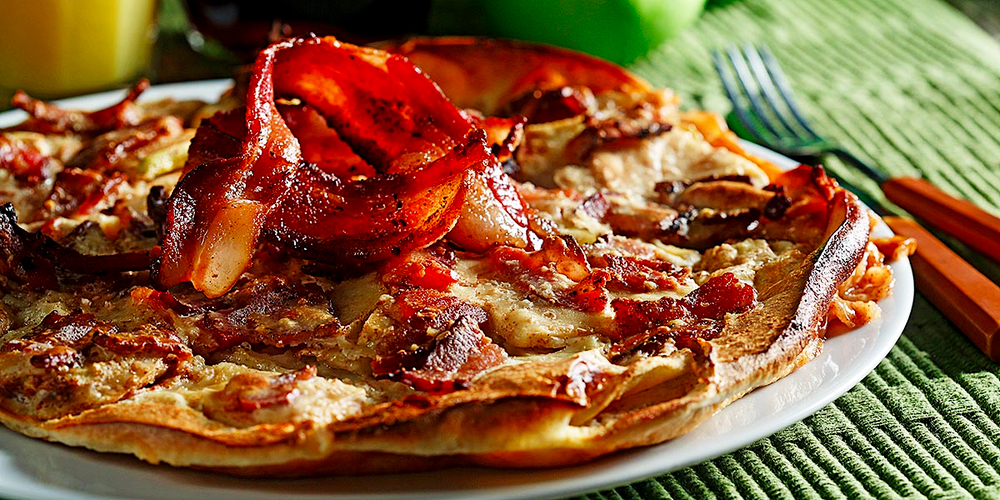The world continues to watch in horror as the conflict in Syria leaves so many hundreds of thousands dead and millions homeless, their cities and towns destroyed.
Many Syrians now rely on emergency food assistance. The Canadian Foodgrains Bank, for example, has provided over $30 million of emergency food assistance since late 2012, to Syrians who remain in their country, or have fled to Lebanon and Jordan.
It is incomprehensible for the rest of us, safe and secure at home and blissfully eating dinner every night, what it’s like when the simple daily routine of meal making has been disrupted or rendered impossible.
Read Also

Cooking fish of Manitoba: Keep your catch fresh and tasty for the table
Fishing in Manitoba provides mouthwatering meals, assuming anglers handle, process and cook their fish properly before sitting down to eat. Here’s how, with recipes and fish preparation tips.
Yet, that’s the experience for every person anywhere conflict has usurped societies, destroyed food systems, wiped out farms, and uprooted people from their homes.
Food writers lately have flagged another tragic loss of the Syrian conflict, as their mass migrations continue — the loss of an ancient culinary tradition.
The Syrians have one of the oldest diets in the world because theirs are — or at least were — some of the longest continuously inhabited cities, towns and villages on the planet.
But with so many hundreds of thousands of families now migrating, it will be a struggle for many of them to eat as they were accustomed, let alone pass on food traditions as they have for centuries.
As I was thinking about this I happened upon a a website — syriancooking.com — with a host of beautiful Syrian recipes. It was created by Ghinwa Alameen, a linguistics professor in the U.S., who was born in Syria.
She created the website a few years ago, because she loved to cook but was frustrated being unable to find good and reliable Syrian recipes online. She felt that their ancient cuisine was not well understood or well represented to the world.
So she posted recipes from her own mother, grandmother and friends, all of them tested many times by herself too, of course.
Alameen stopped collecting recipes a couple of years ago, as the conflict in Syria intensified. But she has since updated her website in response to a new need.
“I have been contacted by many warm-hearted people who wanted to host Syrian refugees and/or make them feel welcome,” she writes on the site. So she has added a special section to the site, including a printable grocery list to help stock a pantry with foods and ingredients familiar to Syrians, an Arabic list of common kitchen utensils, plus a list of simple recipes with easy-to-find ingredients, which she calls recipes for refugees.
I encourage you to look at the website yourself. Try some of the recipes, and discover a new way of eating. And please pass along the website to those you may know in rural communities sponsoring a family. As Ms. Alameen writes, the section updates are meant to “help Syrians who depend on themselves, as well as help their generous hosts make them feel welcome and safe.”
The Syrian diet is one of intense flavours, with fresh vegetables the common daily ingredients in many dishes, plus spicy meats, dairy products, and liberal use of fruits, grains, nuts. The Syrian breakfast is especially intriguing. It’s more like a small buffet of cheese, vegetables and olive oil.
You won’t find these recipes complicated or the ingredients hard to find, with plenty of attention paid to including easy-to-find substitutes.
Shorbit Adas (Lentil Soup)
Lentil soup is the most traditional soup in the Syrian kitchen. This soup can be made with red or brown lentils.
- 1 c. lentils
- 5 c. chicken stock or water
- 1 medium chopped onion
- 2 tbsp. olive oil (or butter or ghee)
- 1/2 tsp. cumin
- Salt and pepper to taste
In a pot on medium heat, sauté the onion in olive oil or butter. You can skip this step and boil the onion with the lentils to reduce fat content. Add stock or water and lentils. When they start boiling turn down the heat and leave for one hour until completely done. Add cumin, salt and pepper. If you are using red lentils, the soup is ready to eat at this point. For brown lentils, or a smoother feel for red lentils, purée in a blender until it has the desired consistency. Serve warm with lemon wedges.
Yakhanit Batata (Potato Stew)
If you are a stew lover, this rich blend of flavours is the one for you. A dish to fill your eyes and stomach!
- 3 lbs. potatoes
- 1 lb. boneless lamb shanks (or beef stew meat)
- 1/3 c. chopped parley or cilantro
- 1 clove minced garlic
- 1 chopped onion
- 2 tbsp. lemon juice (optional)
- 2 tbsp. canola oil (or 1 tbsp. ghee)
- Oil for frying
- 1/4 tsp. black pepper
- 1/4 tsp. paprika
- 1/4 tsp. Bharat (Syrian spice mix — see recipe below)
- 1/4 tsp. rosemary
- Salt to taste
Put lamb shanks or beef stew in a pot and cover with water. Bring to a boil and remove all froth. Add salt and spices. Reduce the heat and let simmer 2 hours. Peel the potatoes and dice into 2-cm cubes. Deep fry in canola oil and leave them on paper towels to absorb the excess oil. Sauté the onion. When translucent add minced garlic and stir for a minute. Then add the meat and stock to the onion and stir in the potatoes. Season with the rest of the spices and adjust the salt. Let simmer for 15 minutes. Add parsley/cilantro three minutes before turning the heat off. Mix gently. Serve hot with pepper rice and garlic yogurt.
Makes 5 to 6 servings.
Bharat (Syrian Spice)
Syrians use many types of spices in their cooking. Here is one of the standard recipe for a spice mix common in many dishes.
Blend together:
- 50 per cent allspice
- 20 per cent black pepper
- 10 per cent cinnamon
- 5 per cent ginger
- 5 per cent nutmeg
- 5 per cent cloves
- 5 per cent cardamom
— All recipes cited courtesy of Ghinwa Alameen at syriancooking.com.




















